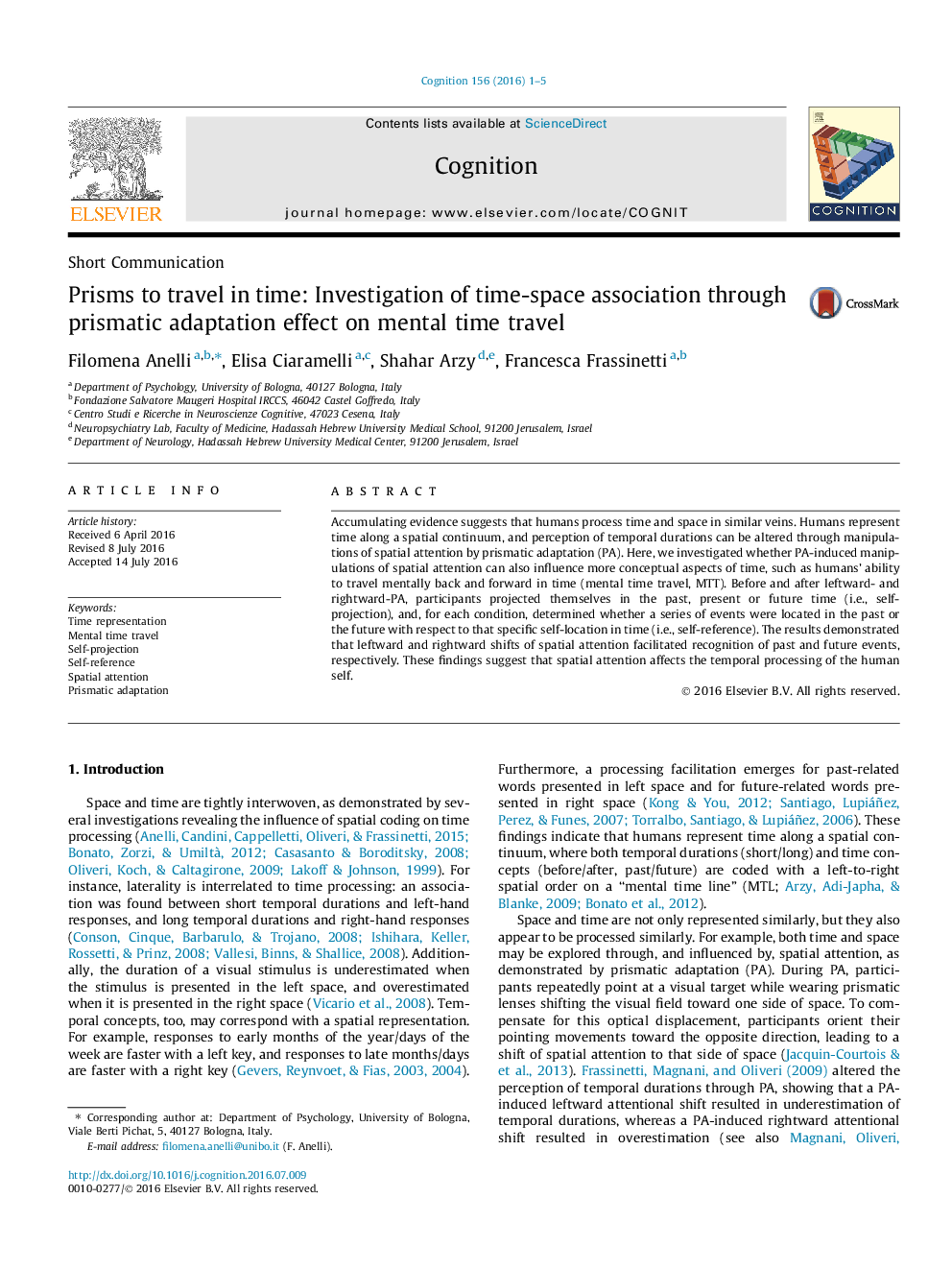| Article ID | Journal | Published Year | Pages | File Type |
|---|---|---|---|---|
| 926320 | Cognition | 2016 | 5 Pages |
•Influence of spatial attention on ability to mentally travel in time is investigated.•Leftward and rightward shifts of spatial attention by prismatic adaptation are used.•Leftward shift of spatial attention facilitates recognition of past events.•Rightward shift of spatial attention facilitates recognition of future events.•Spatial attention prioritizes processing of particular locations in time.
Accumulating evidence suggests that humans process time and space in similar veins. Humans represent time along a spatial continuum, and perception of temporal durations can be altered through manipulations of spatial attention by prismatic adaptation (PA). Here, we investigated whether PA-induced manipulations of spatial attention can also influence more conceptual aspects of time, such as humans’ ability to travel mentally back and forward in time (mental time travel, MTT). Before and after leftward- and rightward-PA, participants projected themselves in the past, present or future time (i.e., self-projection), and, for each condition, determined whether a series of events were located in the past or the future with respect to that specific self-location in time (i.e., self-reference). The results demonstrated that leftward and rightward shifts of spatial attention facilitated recognition of past and future events, respectively. These findings suggest that spatial attention affects the temporal processing of the human self.
Graphical abstractFigure optionsDownload full-size imageDownload as PowerPoint slide
